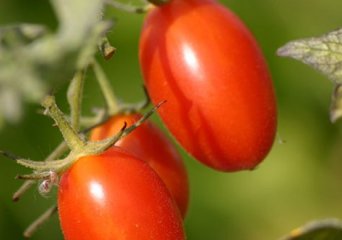
Special collections
In addition to its regular gene bank collections that CGN maintains for current and future generations as part of the Multilateral System of the International Treaty, CGN also offers seed samples from special collections that have been developed for a specific purpose targeting specific user groups.
About special collections
Special collections versus regular collections
Under its mandate of the Dutch government, CGN maintains collections for the purpose of ex situ conservation and availability of crop diversity in perpetuity. These ‘regular collections’ are managed according to standard procedures that are largely based on consensus in the gene bank community, and are described in CGN’s quality management system. In addition, CGN has started to introduce alternative collection types that are not primarily aimed at conservation in perpetuity but rather serve a specific purpose or better address the needs of specific user groups.
Alternative collection types may include research materials for genomics studies, such as mapping populations and genetically purified lines, national heritage collections of heirloom varieties that are tailored to the general public, or series of hybrid lines between cultivated and wild germplasm to facilitate the screening of phenotypic traits existing in accessions of wild species. The range of specific purposes and specific user groups can be wide, and collections serving these purposes and user groups are collectively referred to as ‘special collections’. Particularly in combination with their associated information, special collections may provide high added value for utilization. As the nature and purpose of each collection type can be different, also the protocols to manage special collections will differ from those of the regular CGN collections. For example, the acquisition strategy, range of management operations, level of documentation and distribution conditions are determined for special collections on a case by case basis, not necessarily following the protocols used for regular collections.
The genetic resources included in the special collections are distinct from those in CGN’s regular collections, and - if derived from the regular collections - can be classified as plant genetic resources under development according to the definition in the Standard Material Transfer Agreement of the International Treaty. For example, a special collection may consist of a series of progenies of re-sequenced individuals from regular accessions of an autogamous species, providing near-certainty that the obtained DNA sequences are fully retained in all of the obtained seeds of a progeny that has been derived from a genetic background that might be heterogeneous.
Distribution of special collections
Considering CGN’s mandate, providing access to special collections should be regarded as a special service. Seed requests for accessions from special collections cannot be requested via CGN’s online ordering facility, but instead should be communicated with the responsible curator. To compensate for the expenses incurred by offering this special service, including the management of special collections and the handling of seed requests thereof, costs may be involved for providing seed samples to users. Additional charges may apply in case of requested or obligatory phytosanitary procedures.
Pricing of the special collections of CGN
The special collections of CGN are a service of CGN to specific communities. In principle, these services have to be cost neutral, i.e., the costs endured by CGN for creating and managing these collections have to be recovered either from the ones asking us to create and manage the collections or from the ones using the collections. Often it will be a combination, for example, a project consortium creating a set of lines might ask CGN to make these lines publicly available for a period of minimal 10 years. In such a case CGN could charge the fixed costs of regenerating and creating seed bags to the project, whereas the variable costs of handling requests and distributing the seeds could be charged to the user. In other cases where CGN considers specific materials to be of value to a community, it might invest in the seed production, recovering both fixed and variable costs via the price of the seeds. As the demand for the seeds cannot be predicted, the price might change depending on the expected demand. In cases where CGN has a direct interest in the use of the material, for example, when information very valuable to the public will be generated and made publicly available, CGN can decide to make the material available for a reduced price.
Thus, the price of materials from different special collections may be quite different, and change in time. In all cases it will be the discretion of CGN to determine the appropriate price, based on the aforementioned considerations.

Special collection of 73 re-sequenced tomato lines
A collection of 73 tomato lines re-sequenced within the 150 Tomato Genome ReSequencing Project.

Special collection of 470 SSD lines of Lactuca spp.
Collection of 470 Lactuca single seed descent (SSD) lines, mainly derived from CGN’s regular collection.

Special collection of crop wild relatives of leek collected in Greece

Special collection of wild relatives of lettuce collected in Jordan